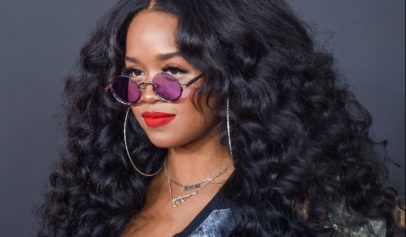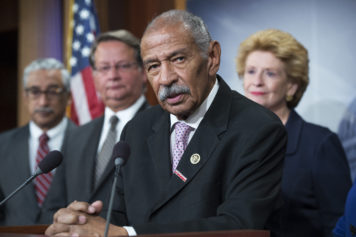B. Scott, the transgender Internet personality, made a painful reference to a character from “The Color Purple” in his deposition for his lawsuit against BET network.
Essentially, the reference seems to compare the struggles that African-Americans faced during their fight for civil rights to the struggles that members of the LGBTQ community face in modern-day America.
It all stems from the lawsuit B. Scott filed against BET last summer after the network refused to let him work as a fashion correspondent on the BET Awards red carpet.
While the network did hire Scott for the job, he was forced to change attire after he showed up wearing makeup, a woman’s blouse and black heels.
Now he’s seeking $2.5 million from the network.
According to Scott, BET’s action was not just discrimination, but proof that he and a character from Alice Walker’s prize-winning novel, “The Color Purple,” have something in common.
“I feel like Sofia in ‘The Color Purple,’ “ he said in the deposition. “ ‘All my life I had to fight!’ Because of my experience with BET, it led me to the realization that I am transgender because of my gender identity and expression. It was specifically because of my gender and not my sexuality that made me a target.”
Sofia faced severe beatings and cruel punishments because she was a strong Black woman who was expected to live a submissive life – dominated by whites and by men. The character loses her dignity and strength throughout the story and is eventually forced to work in prison without getting paid.
Unfortunately, Scott’s comparison of his situation – forced to change clothes at an awards show – to Sofia’s story, is misguided.
While fans of the Internet celebrity are aware of his over-the-top analogies and exaggerated dialogue, comparisons between the Civil Rights Movement and the fight for gay civil rights have always been controversial.
Although it is true that members of the LGBTQ community often face discrimination, their struggle for equality is certainly not one that can remotely be compared to the danger Blacks faced before and during the early 1960s.
They have never faced lynching, high-powered water hoses or attacks by police dogs, just to name a few examples.
Not to mention the overwhelming support that generally exists for members of the LGBTQ community when they are targets of discrimination.
More often than not, there is backlash against those who discriminate against gay people, whereas white people who showed any support for African-Americans were sometimes punished.
Out.com has even featured a list of the 50 most powerful gay Americans – such a list of Blacks, during the civil rights era, could not have existed. Not only because there would have been widespread backlash, but because there wouldn’t have been a single powerful Black person’s name to put on the list.
There was a system in place, which has effects still present today, that ensured that even though Blacks were free they would most certainly never be powerful.
Every group’s civil rights are important.
The countless number of hate crimes against the LGBTQ community is a heartbreaking reality, however; the struggles of those who are fighting for the right to marry and those who were mercilessly beaten for drinking from the wrong water fountain are incomparable.


